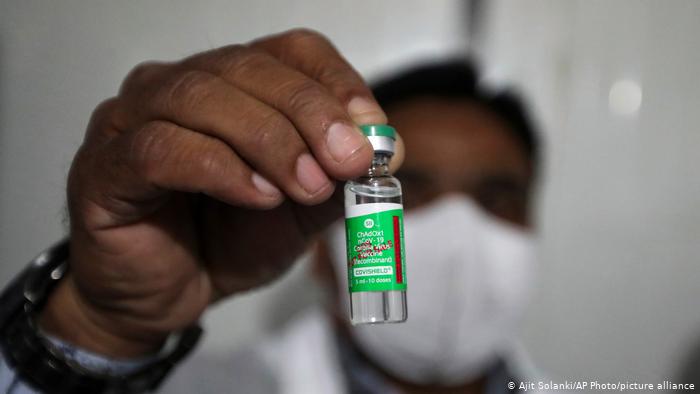While Nigerians who took the first dose of the AstraZeneca COVID-19 vaccine await its maturity period to receive the second dose, the first batch of the Oxford-AstraZeneca COVID-19 vaccine donated to the country is due to expire between June 28 and July 9, 2021. This was made known last week by the Executive Director of the National Primary Health Care Development Agency (NPHCDA), Dr Faisal Shuaib, at the weekly briefing of the Presidential Steering Committee (PSC) on COVID-19. He also said there would be a delay in the arrival of the second batch of the vaccine which might also affect and impact the remaining phases of the vaccination campaign.
It would be recalled that Nigeria received 3.92 million doses in early March 2021, which made it the third West African country to benefit from the COVAX facility after Ghana and Cote d’Ivoire. The COVAX facility is co-led by Gavi, the Vaccine Alliance, the World Health Organisation (WHO), the Coalition for Epidemic Preparedness Innovations (CEPI), with UNICEF as a key implementing partner. So far, 1,173,869 Nigerians; representing 58.3 per cent, of eligible persons targeted in the current phase have received the first dose of the AstraZeneca vaccine.
- Kaduna govt mum as bandits threaten to kill varsity students
- How we suffocated 6-year-old kidnap victim to death — Suspect
Meanwhile, the NPHCDA boss disclosed that the government had signed off to receive up to 29.8 million doses of the Johnson & Johnson COVID-19 vaccine through the African Union (AU). He said Nigeria was expecting deliveries of vaccines through the COVAX facility by the end of May or early June 2021. By this time, the process of administering the second dose of the AstraZeneca vaccine to those who got the first dose would have been completed.
Media reports confirm the global scarcity of COVID-19 vaccines due to high demand, especially in countries where the vaccines are being produced. This, therefore, explains the fears and anticipated delays expressed by Shuaib in subsequent supplies of the vaccines to Nigeria.
He said, “In response to the anticipated delay, the federal government has rationalised the vaccination exercise by preserving 50 per cent of available doses of the vaccine for the administration of the second dose.”
The NPHCDA must educate and encourage Nigerians who have so far received the first dose to go back at the appropriate time for the second dose before the vaccine expires, else, the unused quantity would have been wasted and the first dose received by the select group would have also been rendered ineffective.
Therefore, rather than rely heavily on supplies from the COVAX facility, while waiting endlessly for the Johnson & Johnson vaccine, the government is urged to quickly complete legislative action on supplementary budget provisions for the purchase of COVID-19 vaccines. This will hasten citizens’ access to the vaccines, particularly those who are yet to receive the first dose. Government must note that delay is dangerous, the virus is still ravaging some countries, and so it should not fold its arms and wait for charity.
Government should explore all available options while also looking towards other countries that have produced the vaccine. As a long-term measure, the government can support local companies that show promise in the production of the vaccine.
The PSC on COVID-19 keeps reminding Nigerians that the pandemic is not over. Yet, many people ignore COVID-19 protocols, especially in public spaces. India’s current experience in the surge of the virus should be a lesson for Nigeria which the health sector lacks the capacity to cope with even minimum public health emergencies. The World Health Organization (WHO) said the present staggering spike of infection in India is the result of mass gatherings, more contagious variants and low vaccination rates. With its modern health facilities, India’s hospitals and crematoriums are overwhelmed by the daily statistics of over 300,000 new infections; accounting for more than one-third of global cases.
Citizens must note that it is not yet Uhuru. Observing all the protocols put in place by the PSC on COVID-19 still remains strategic in the collective response to the pandemic. We must all work together to avert another wave of pandemic in the country as both the health care system and economy cannot handle it.

 Join Daily Trust WhatsApp Community For Quick Access To News and Happenings Around You.
Join Daily Trust WhatsApp Community For Quick Access To News and Happenings Around You.


